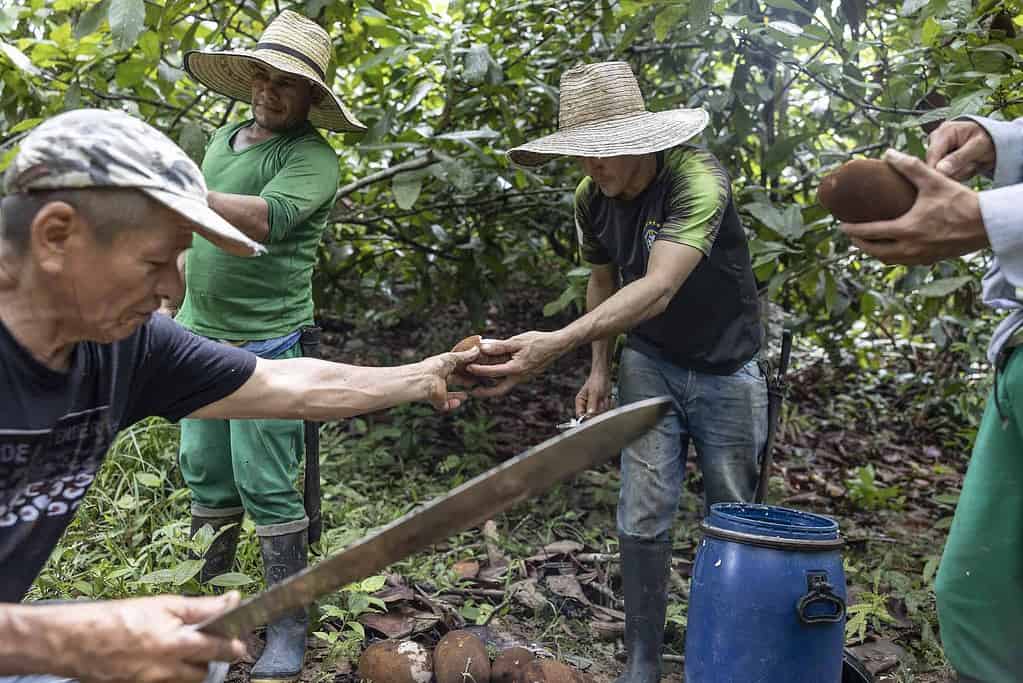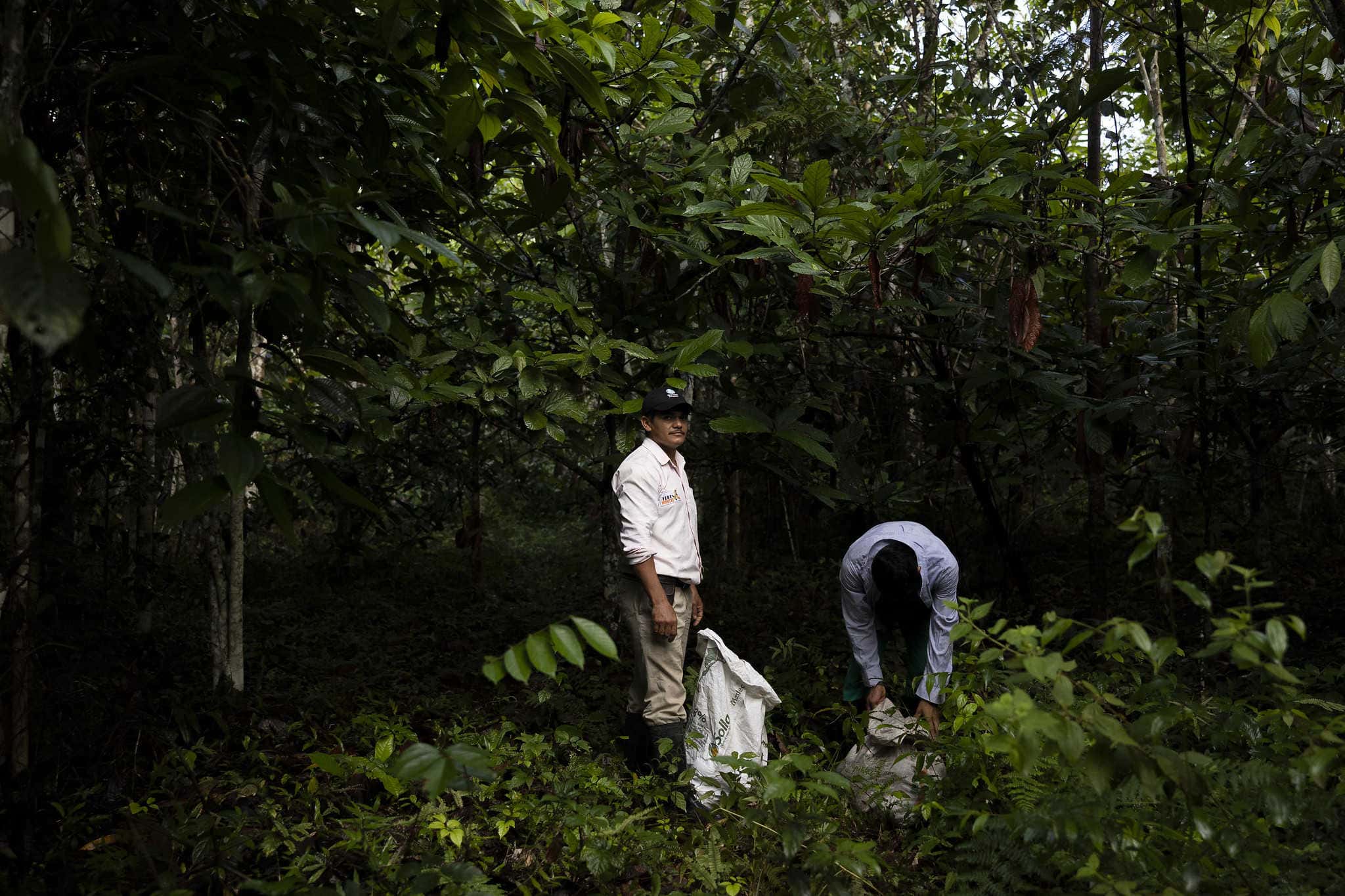Impact at the edge: Making every voice count

- Blog
“I was nearly losing hope in my cocoa farm. With [Acumen investee Lizard Earth’s] presence, I got new skills on how to maintain my farm and how to make soap for sale.” That is what a 60-year-old farmer in Sierra Leone said to a researcher while passing the phone to his friend for another interview.
At the end of 2022, Acumen reached a significant milestone, surpassing 500 million lives impacted through our Patient Capital investments. At the most fundamental level, we define lives impacted as the number of individuals gaining access to a product or service. This could mean a smallholder farmer selling a product to a company, or a household that has gained access to a solar home system. As the sum of their parts, these top-line impact stats are critical for us to display the breadth of our work and to analyze and aggregate our reach by country and sector.
But at Acumen, measuring impact is not just about counting lives reached. It is also about listening and learning from the people we are serving – such as the Sierra Leonean farmer – to better inform our decision-making as an impact investor. This is particularly critical when working with some of the most innovative companies solving problems of poverty around the world.
Measuring What Matters
Many of the companies we invest in are at an early stage and may not yet have the resources or the expertise to conduct detailed customer research. After 22 years of close collaboration with these companies, we know the best way to understand a business’ effectiveness is from direct contact with its end-users. Through Acumen’s partnership with 60 Decibels – an impact measurement company spun off from Acumen in 2019 – we measure what matters: the customer’s voice.
This approach is not always easy. To talk to end-users of a company directly, 60 Decibels needs the company’s approval, the phone numbers of their customers, and a sufficient number of respondents to reach a statistically robust, representative sample. Often, an adequate sample size is hard to attain due to a lack of phone number record keeping, disconnected lines, connectivity issues, low prepaid balances, and frequent phone number changes, among other financial and social constraints.
Making Every Voice Count
We need creative solutions to work within these constraints and to listen and learn from those traditionally left behind. Some effective ways to reach our investee’s customers include asking for customer referrals from those who own a phone, mobilizing customers to respond to in-person interviews on days of market activity, and passing around a phone during group interviews. In some cases, we work with the companies to identify the “anchor” farmers or local community leaders who help to build trust and gather as many phone numbers as possible.
Zebra CropBank is a Nigerian-based company run by its CEO and founder, Buffy Okeke-Ojiudu. The company has set up solar-powered micro-warehouses to reduce post-harvest losses for smallholder farmers. The farmers CropBank serves live in remote areas, are extremely poor, and the distrust from regional and political systems often meant greater reluctance to share their numbers or take calls from strangers. This made data collection extremely challenging.
“Farmers have been hesitant to attend the planned phone calls outside their farmer meeting days,” says Buffy. “And being mostly dependent on the rain, [they] are busy prepping their lands for planting their crops.”

To navigate this issue, researchers worked closely with warehouse managers to deploy a new method – passing around a phone – during planned market meetings. The researchers also received the support of the community leaders to ensure that farmers being interviewed were regular users and were isolated while answering the questions. Their responses were also anonymized and to be used for research purposes only. This helped to build a close connect with the community, optimized farmer time and led to a more robust understanding of their experience using services provided by the company.
Farmers expressed a high degree of satisfaction with CropBank, demonstrated by a Net Promoter Score of 70. Many reported general satisfaction with access to the storage facilities, quality of inputs, and education in farming practices.
“When you have a very good harvest and the need to store it becomes a big problem. It means you might end up losing half of your harvest. But with Zebra Crop Bank, you are safe. They have provided us with a quality storage facility and better education on farming that now makes us do better.” A 58-year-old Nigerian farmer.
Impact at the Edge
Any innovative or impactful measurement technique is only as successful as its applicability. In the case of CropBank, it helped us build confidence in their value proposition and the impact the company can make in the lives of the farmers. It helped us identify the existing strengths and its operational gaps and opportunities for accompaniment – ultimately guiding us toward greater accountability.
“The 60 Decibels studies guide our portfolio companies in decision-making by enabling them to see the gaps in their businesses from their customers’ perspectives.” says Feyisola Adekogbe, Acumen West Africa Senior Investment Associate.“This also enables us, as an investor, to provide insights on the impact of potential new investments during our investment committee meetings.”
Acumen has always believed in building a world based on dignity. Every individual should have the right to access basic goods and services – from clean water and electricity to education and the freedom to participate in the economy. This is why it’s imperative we hear the customer’s voice and determine whether our investees are making a real, lasting difference in the lives of those they seek to help.
Ultimately, data collection is only half the mission. The other half is using it for action. By listening and learning from our investee’s end-users, we can enhance our accountability as an investor, better understand our impact, and bring more capital to bear in solving problems of poverty around the world.